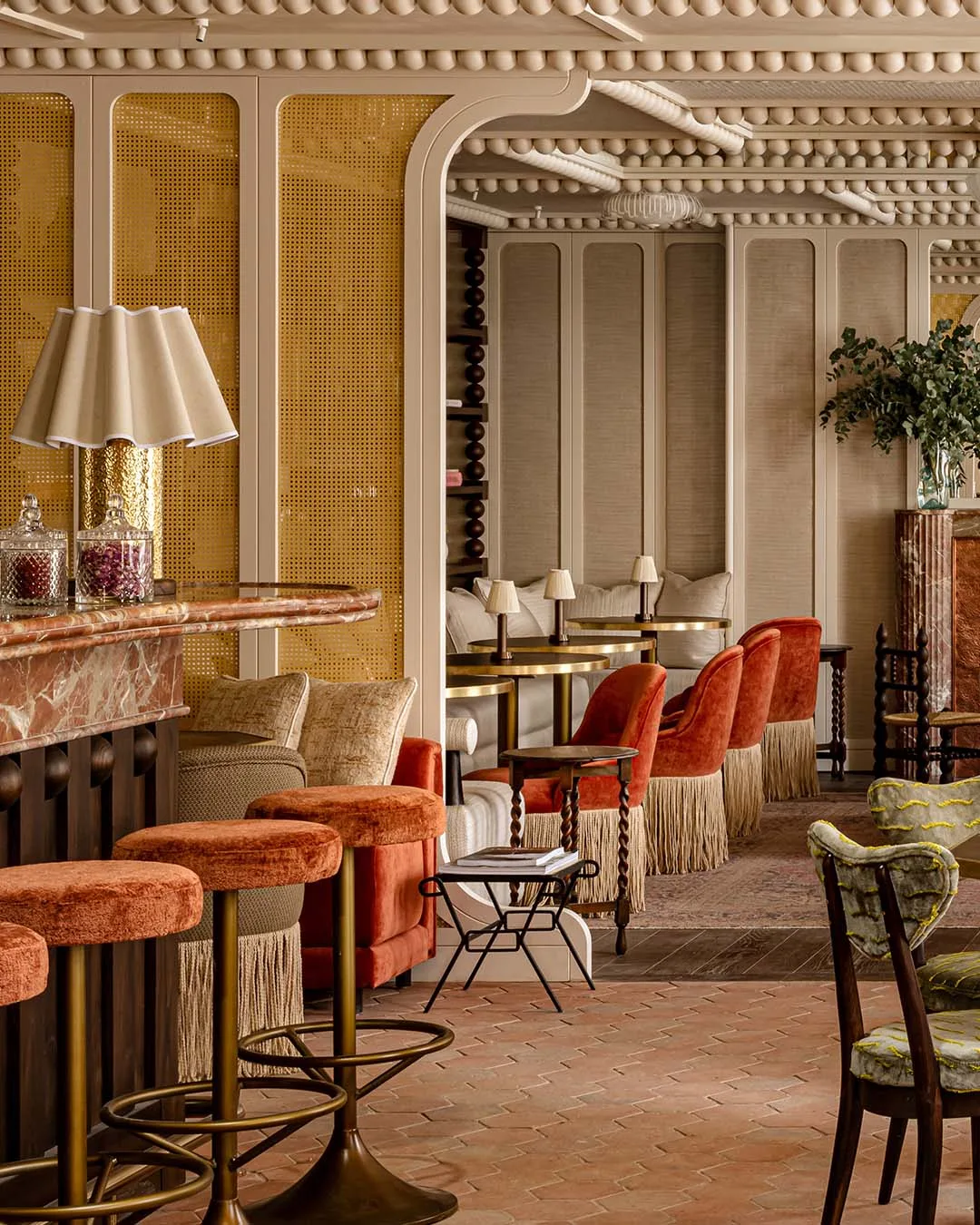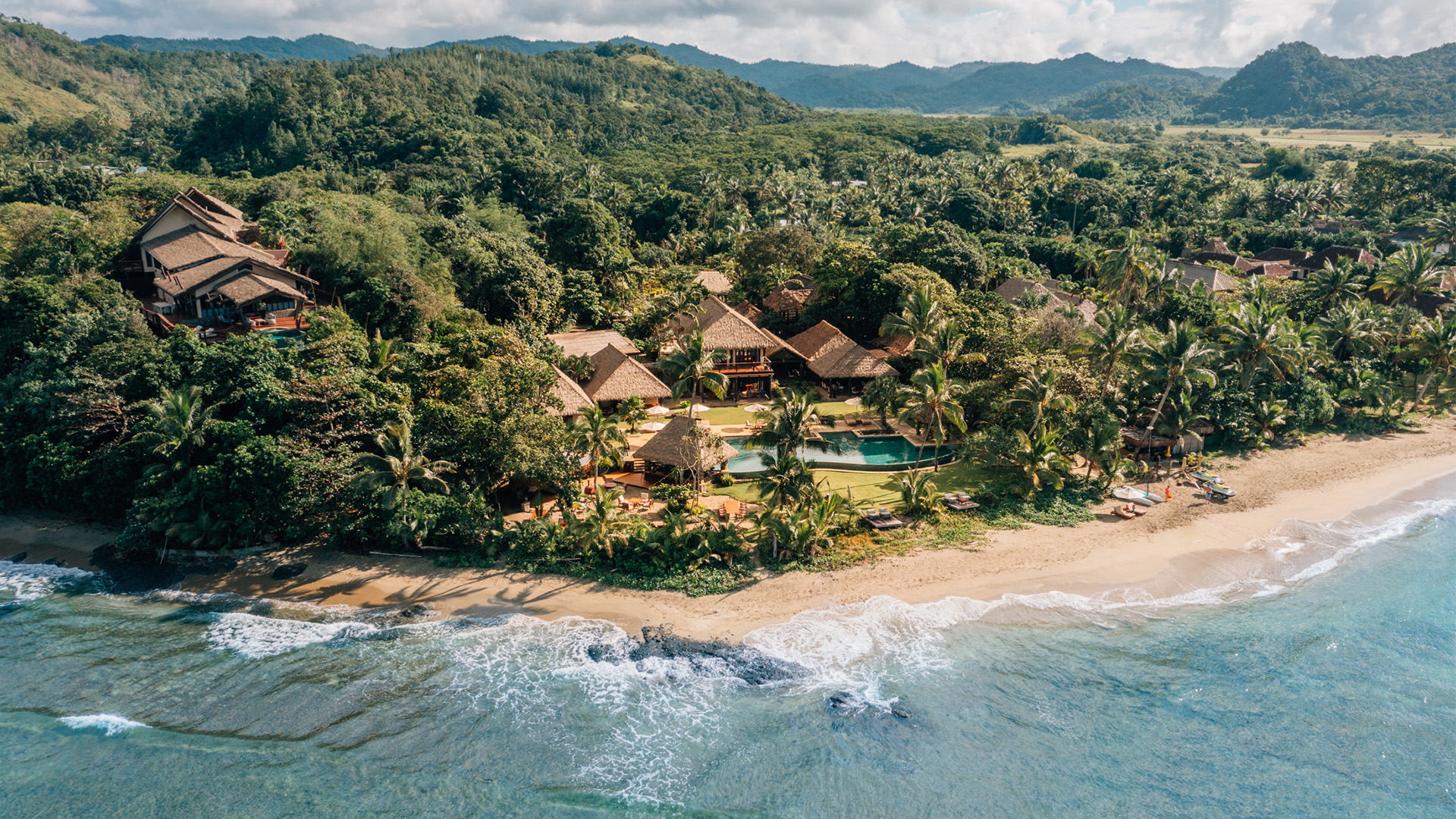
Overlooking the shimmering waters of Beqa Lagoon in Fiji, home to one of the largest barrier reefs in the world, Nanuku Resort has become a living laboratory for marine conservation, led by the passionate efforts of Fijian natives Waseroma Sigavou, the resort’s resident marine scientist, and Kelly-Dawn Bentley, its dedicated Sustainability Manager.
This World Ocean Day, we dive into the Considerate Collection resort’s hands-on efforts to restore coral reefs, engage the local community, and inspire guests to become ocean stewards. From protecting sea turtle nesting grounds to innovative reef-safe practices, Nanuku exemplifies how tourism can tread lightly — and give back deeply — to the ocean that sustains us all.
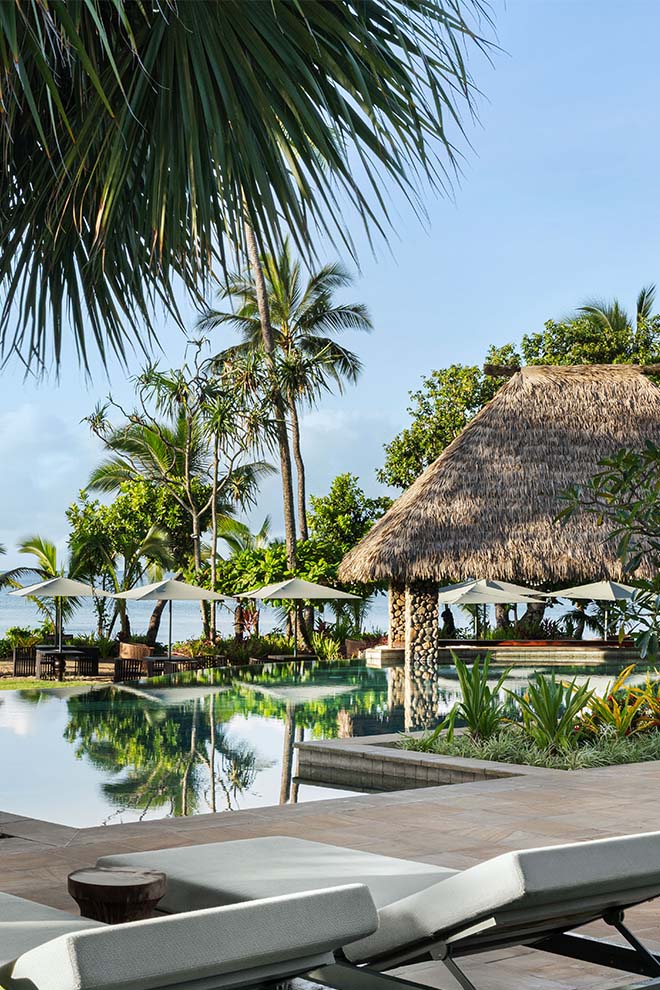
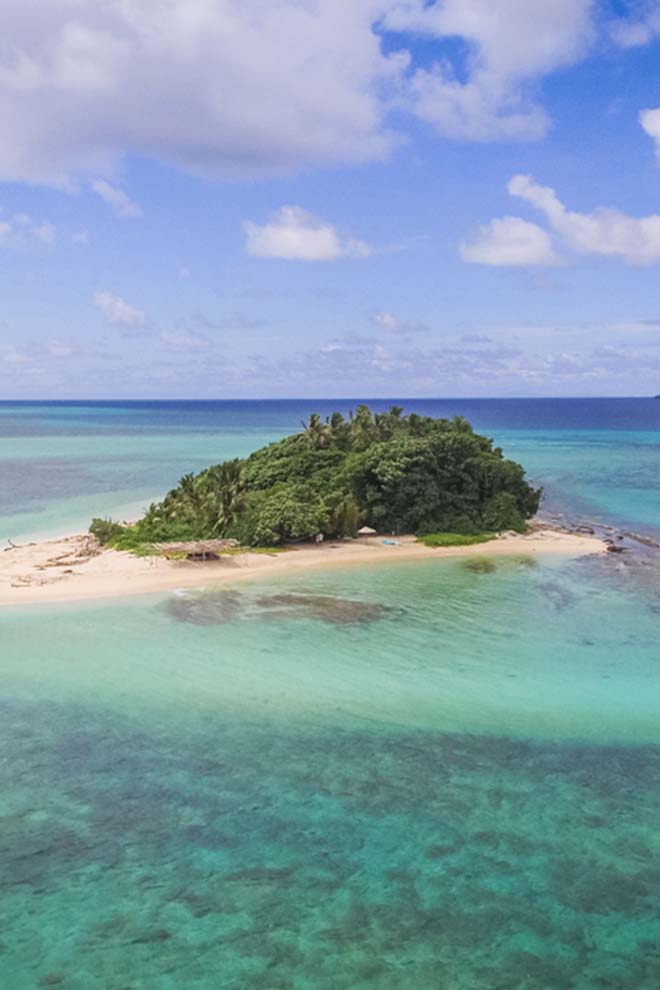
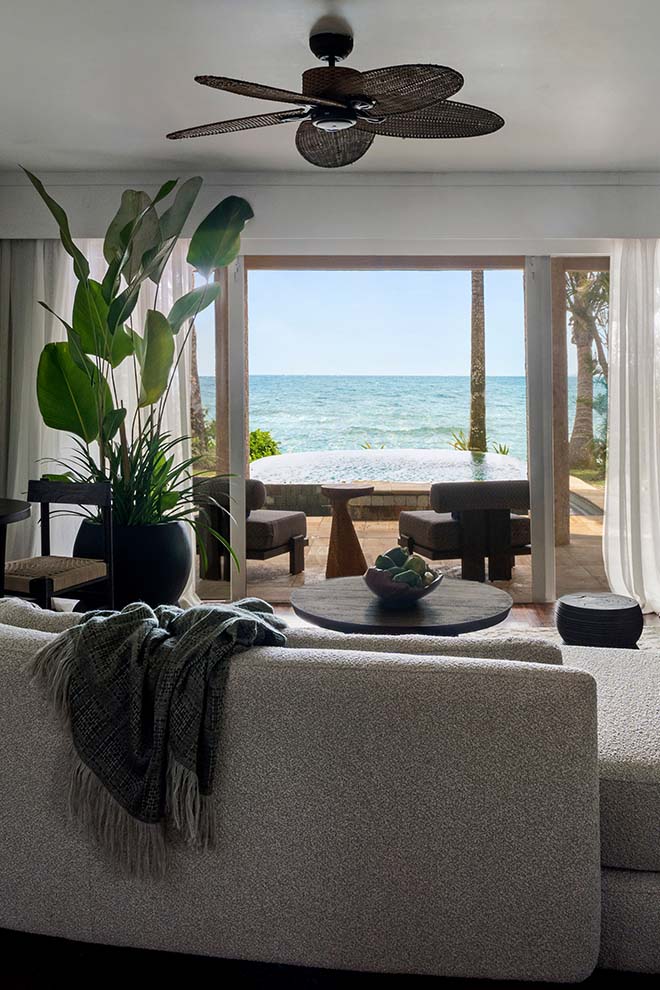
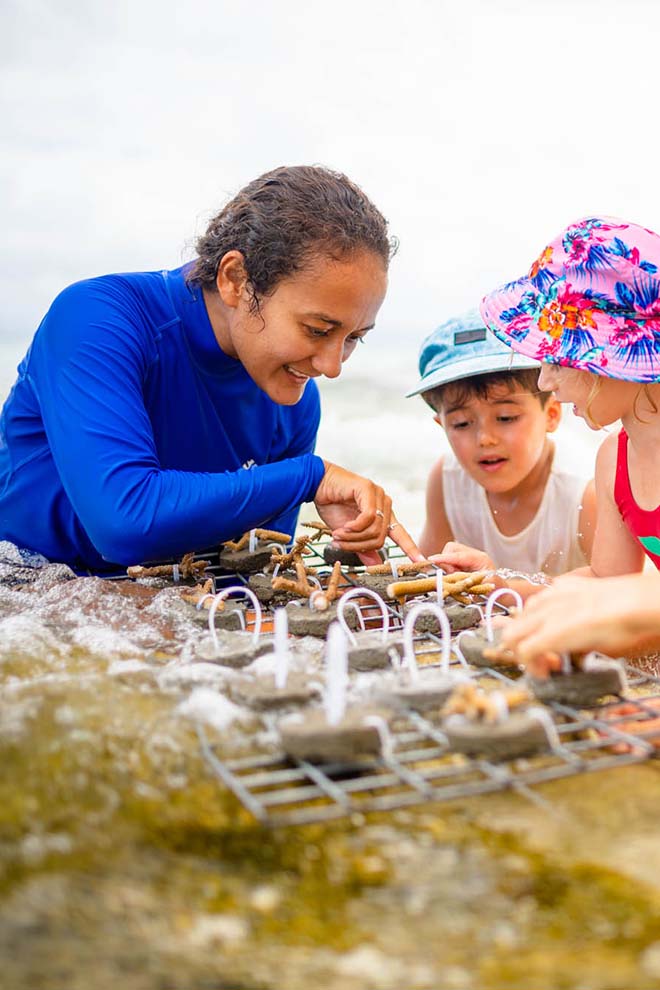
Tell us about the coral planting efforts at Nanuku Resort.
At Nanuku Resort, coral planting is more than just an activity — it’s a commitment to marine conservation. Twice a week, we invite guests to join our coral planting sessions, designed to both educate and inspire. One session is part of our immersive Kids Club program, fostering environmental stewardship among our youngest guests, while the second is open to all and promoted on our main activity board.
Our coral restoration initiative has been in place for several years, during which time we’ve successfully planted over 600 coral fragments. Recently, we reached a major milestone by transplanting 100 of these fragments back into the reef system. These included resilient species such as Acropora cerealis, divaricata, millepora, formosa, digitifera, and Pocillopora (Elkhorn coral).
The results have been remarkable. Not only has the transplanted coral thrived, but we’ve also seen a noticeable increase in fish aggregation around the nursery site. Even more encouraging, there’s been significant natural recruitment within the surrounding reef — an important indicator of a healthy ecosystem.
Through efforts like these, Nanuku is proud to play a role in protecting Fiji’s vibrant marine biodiversity for generations to come.
How does Nanuku Resort’s marine programme contribute to larger ocean conservation efforts in Fiji and the Pacific?
Nanuku Resort is deeply committed to marine conservation, leading a variety of local initiatives that protect and restore the natural environment. These efforts include coral reef restoration, safeguarding turtle nesting sites, organising regular beach cleanups, and actively reducing the use of single-use plastics. By partnering with marine scientists and engaging local communities, Nanuku fosters sustainable tourism while promoting environmental education.
These initiatives are closely aligned with Fiji’s National Ocean Policy, which aims to sustainably manage 100% of the country’s ocean areas and protect 30% by the year 2030. Nanuku’s proactive approach also contributes to the broader goals of the Pacific Blue Continent Initiative — an ambitious regional effort to enhance ocean health and strengthen climate resilience across the Pacific.
Through a combination of hands-on conservation work and guest engagement, Nanuku plays a vital role in preserving Fiji’s marine ecosystems and inspiring collective action for a sustainable future.
How are local communities involved in protecting the reef and marine ecosystems? What role does traditional knowledge play in your conservation work?
Local communities play a vital role in safeguarding Fiji’s marine ecosystems, particularly through the establishment of marine protected areas within their traditional fishing grounds. These locally managed areas serve as critical sanctuaries for reef regeneration and biodiversity preservation.
At the heart of these efforts lies traditional knowledge — wisdom passed down through generations that offers a profound understanding of species behaviour, weather patterns, and sustainable resource management. This deep-rooted knowledge is essential to the success of conservation initiatives, ensuring they are not only ecologically effective but also culturally meaningful.
By respecting and integrating traditional practices, conservation programs are more likely to gain local support and long-term sustainability. Protecting the environment in this way also reinforces cultural identity and strengthens community wellbeing, creating a powerful synergy between ecological health and cultural heritage.
For World Ocean Day this year, our guests and staff will be transplanting coral species that have demonstrated strong resilience to rising sea temperatures.
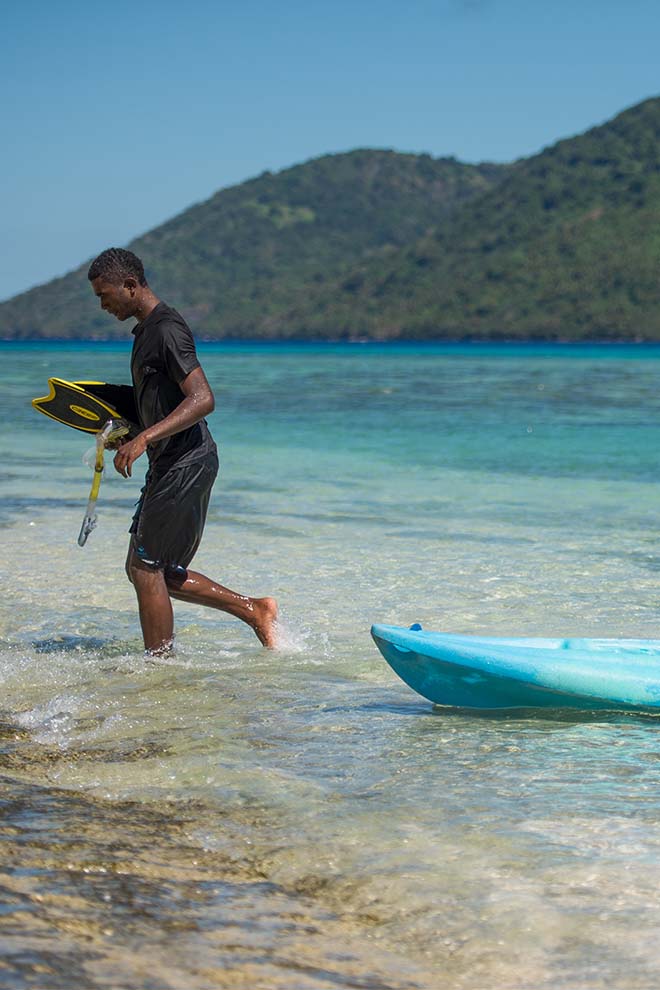
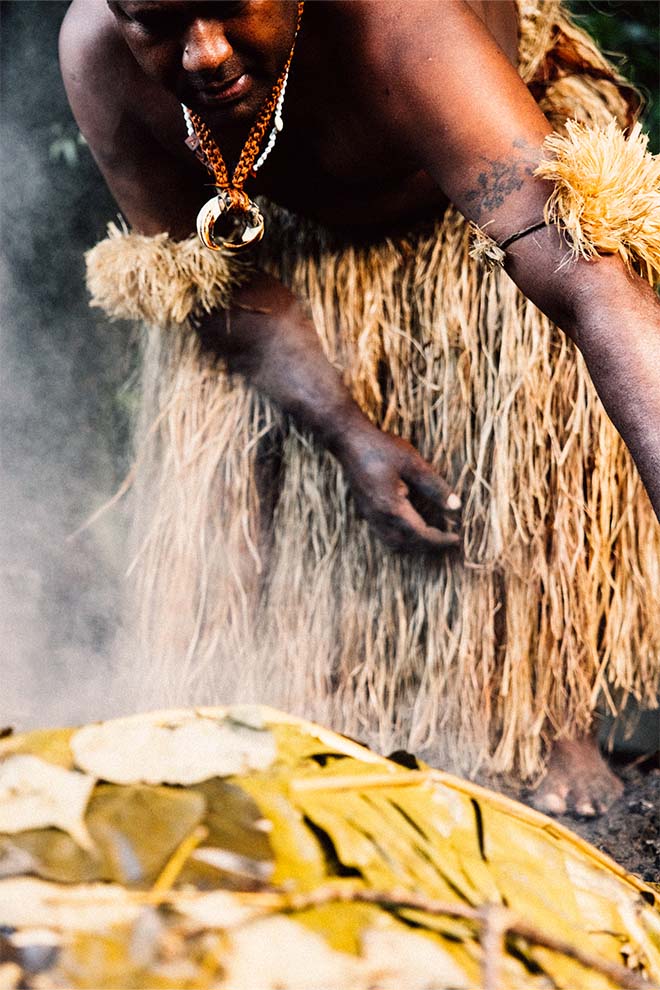
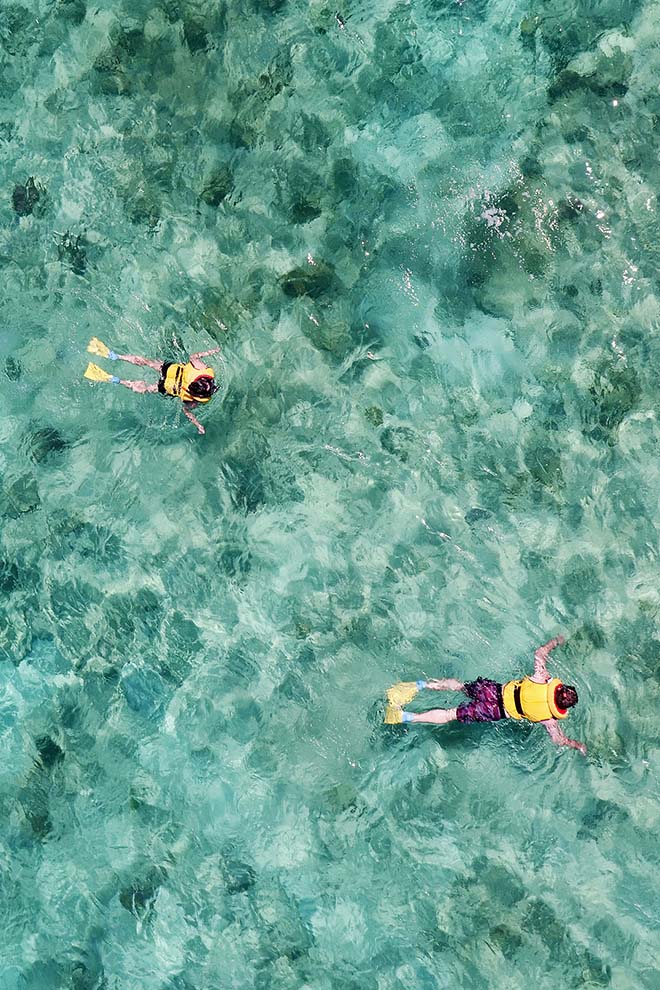
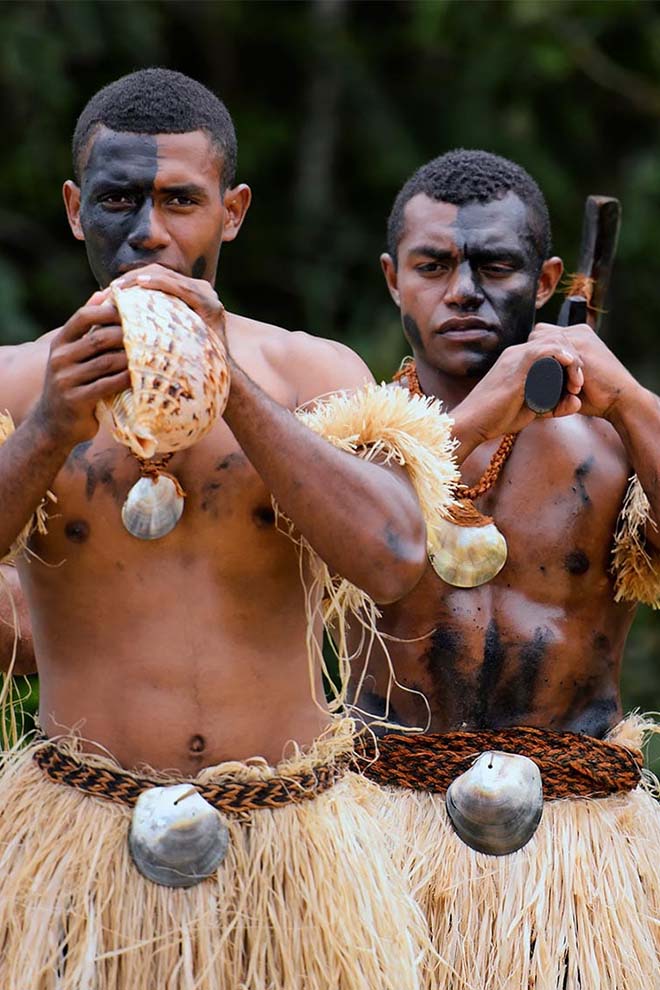
For the local people, what does the ocean represent beyond just a natural resource?
For the local people of Fiji, the ocean is an integral part of the vanua — a foundational concept that expresses the deep interconnectedness between people, their land, and the sea. This holistic worldview holds that any disruption to the vanua must be approached with great care and respect. Ceremonial presentations are traditionally required to seek permission before engaging with land or sea, reflecting a profound reverence for nature and community harmony.
Cultural practices rooted in this philosophy continue to guide marine conservation today. One such practice is the establishment of tabu areas — traditional marine protected zones where fishing and harvesting are temporarily forbidden. The term tabu means “sacred” or “forbidden,” and these no-take zones allow marine life to regenerate, ensuring long-term sustainability.
Other traditional methods, such as yavirau (fish drives), are practiced with precise tidal knowledge, demonstrating an intimate understanding of marine rhythms. Certain species, including turtles and sharks, are revered as totems by some communities and are therefore not hunted.
These customs play a vital role in preserving biodiversity, while also safeguarding cultural identity and maintaining the spiritual and ecological harmony of the vanua. At Nanuku, our Sustainability Ambassador shares these important values through a weekly conservation presentation for our guests, deepening their understanding of local traditions and environmental stewardship.
Many guests experience the coral reef through snorkelling tours — how do you use these opportunities to raise awareness about marine conservation?
At Nanuku Resort, snorkelling is more than just a recreational activity — it’s an eye-opening journey into the vibrant underwater world of Fiji’s coral reefs. Guests encounter a stunning array of marine life and gain firsthand insight into the health and challenges facing local coral ecosystems.
Following their snorkelling experience, we introduce guests to our coral restoration programme, building on their newfound appreciation and curiosity. This seamless transition from exploration to education often inspires deeper engagement, encouraging guests to actively participate in our hands-on conservation efforts.
What are the biggest threats currently facing Fiji’s coral reefs, and what gives you hope for their future?
Coral bleaching remains one of the most significant threats to the survival of coral reefs worldwide. Coral bleaching occurs when corals become stressed — usually due to elevated sea temperatures — and expel the symbiotic algae (zooxanthellae) that give them colour and energy. Without these algae, corals turn white and are more vulnerable to disease and death. Prolonged bleaching events can lead to widespread reef degradation and loss of marine life. Rising sea temperatures and environmental stressors continue to jeopardise these vital ecosystems.
Yet, there is reason for hope. Unlike a decade ago, today there is a growing global movement dedicated to coral conservation. From marine scientists and conservationists to everyday individuals, more people than ever are engaging in coral restoration efforts. This widespread interest and collective action offer renewed optimism for the future of our reefs and the health of our oceans.
What does World Ocean Day mean to you personally, and how does Nanuku Resort mark the occasion?
World Ocean Day is a global celebration dedicated to honouring and protecting the health of our oceans and reef ecosystems. At Nanuku Resort, we mark this important day with meaningful action — by engaging in coral transplanting as part of our ongoing conservation efforts.
This year, our guests and staff will be transplanting coral species that have demonstrated strong resilience to rising sea temperatures. These corals have been carefully monitored and tested in our on-site nursery during the peak summer months, and their successful growth under stress conditions makes them ideal candidates for strengthening the reef. Through initiatives like this, Nanuku continues to champion ocean sustainability and inspire guests to be part of the solution.
What’s one simple action you wish every visitor would take to help protect the ocean, whether in Fiji or at home?
By learning how to plant coral during their stay, guests not only gain hands-on experience in marine conservation but also carry home with them a deeper appreciation for ocean stewardship. They leave inspired by the passion and commitment found in Fiji to protect our reefs — bringing that same sense of responsibility back to their own communities.
Share this article
Latest stories
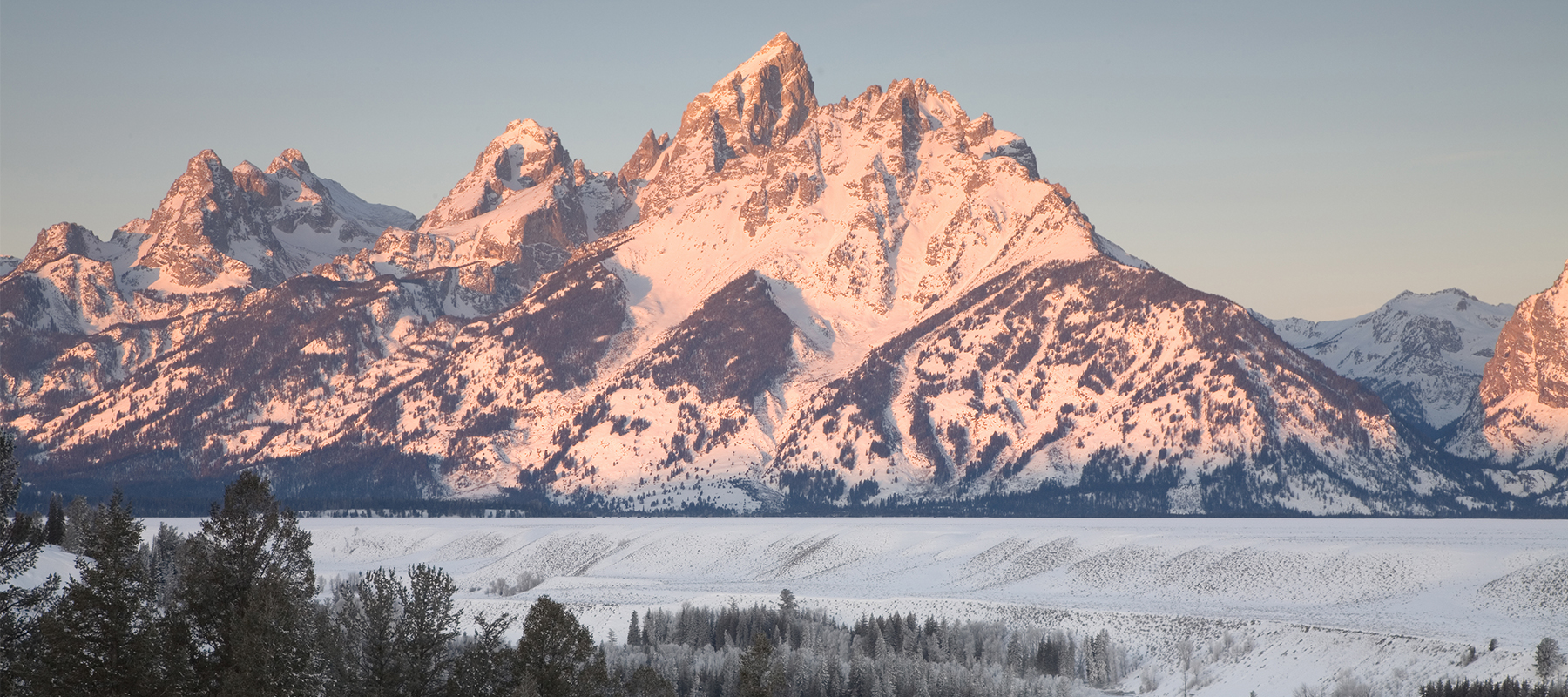
A beloved Jackson Hole lodge reopens for ski season: plus, US mountain hotel top picks
With ski season reaching its peak, discover a revived haven of lofty luxury within the majestic mountain ranges of Teton County, western Wyoming, as a rustic mountain retreat begins a new chapter. The scent of freshly baked cookies still lingers. So does the feeling of being warmly welcomed into someone’s
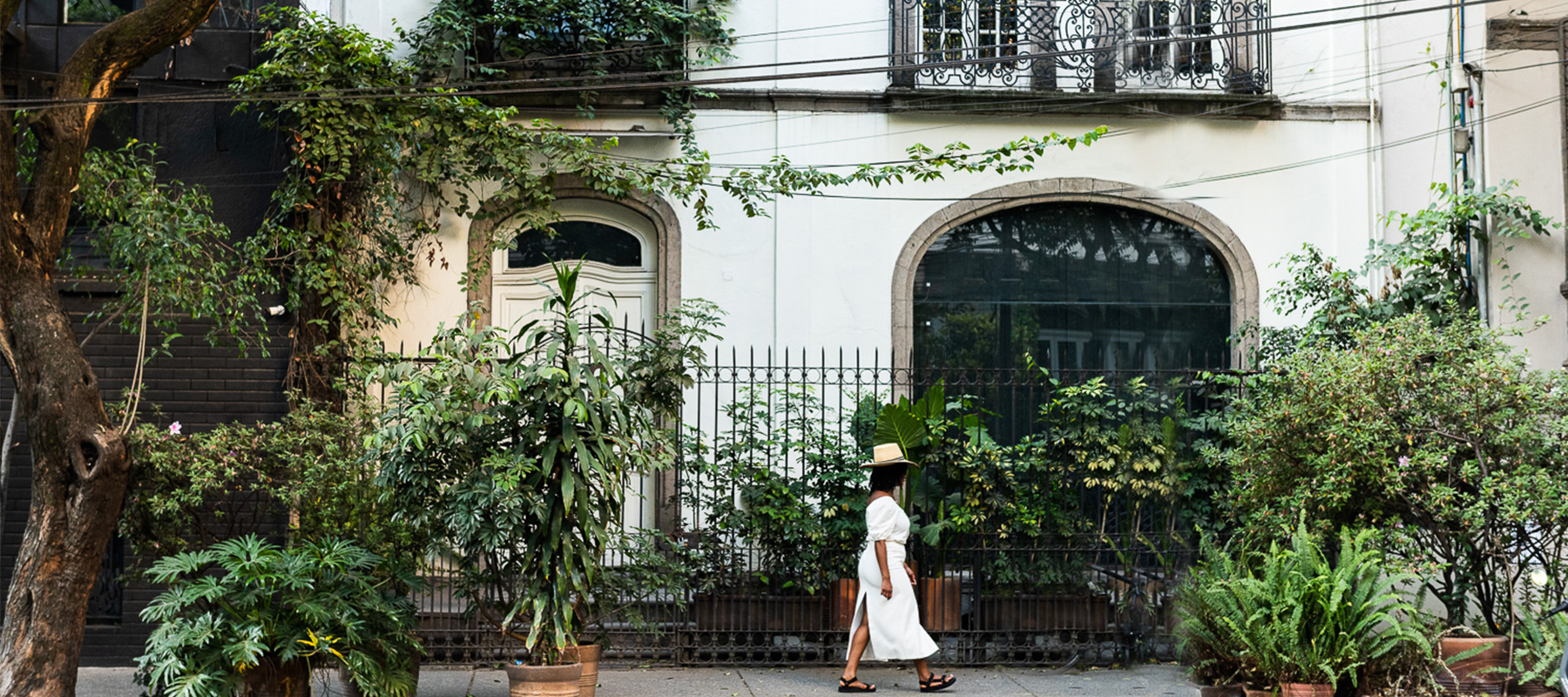
A pocket guide to Roma Norte: Mexico City’s most creative district
Full of characterful, colourful neighbourhoods where culture and cuisine thrive, Mexico City is a magnet for creatives to reside and visit. Condesa remains the go-to for Art Deco architecture and buzzy brunch spots. The bohemian enclave of Coyoacán has long been a refuge for artists. Burgeoning Juárez brings in a
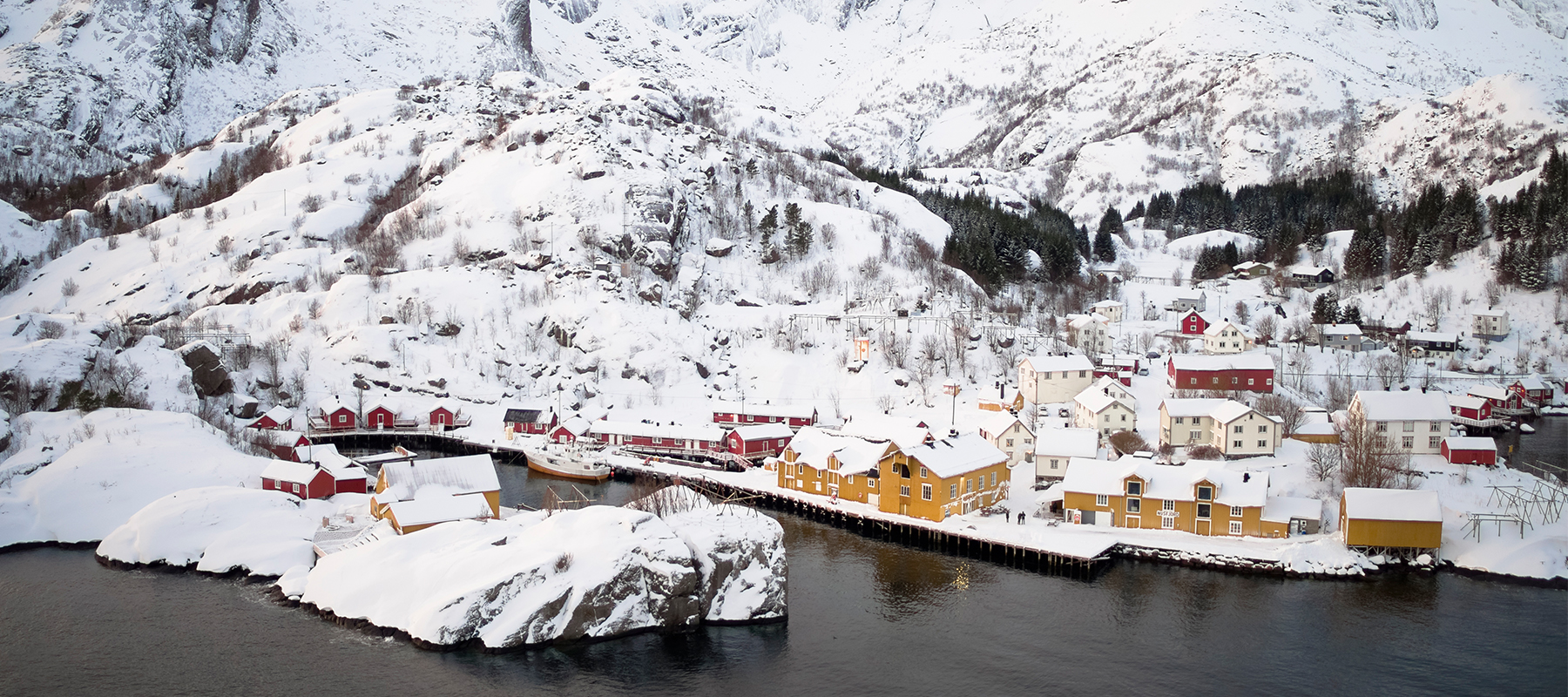
Northern delights: a ‘coolcation’ itinerary across Norway & Iceland
As the train begins its slow, corkscrewing descent into Norway’s Flåm Valley, snow is softening mountain peaks into meringue-like folds. Outside the window, waterfalls freeze mid-cascade, as forests stand still under crystal light. The Flåm Railway — a staggering feat of engineering — feels like a portal into another season,
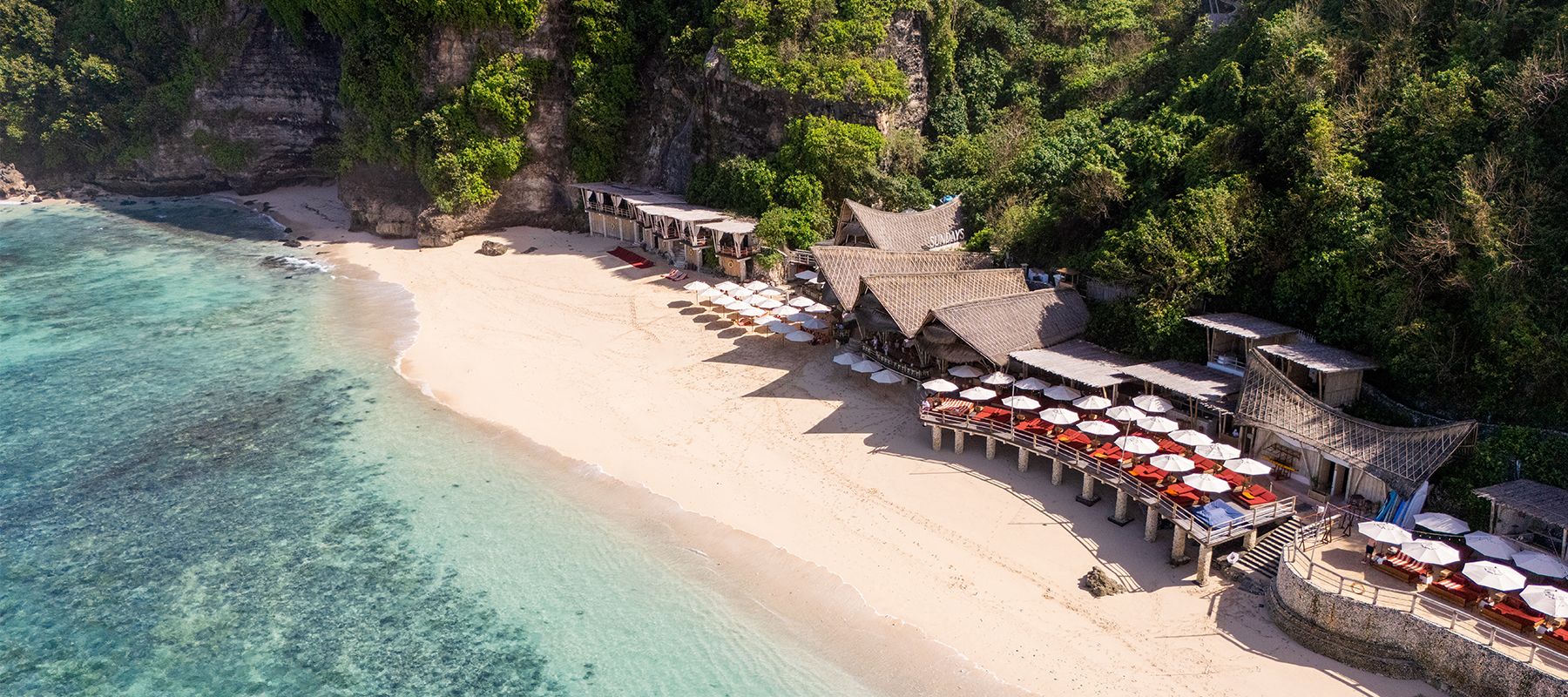
Snowy Lapland lodges to Balinese spa retreats: top boutique hotels for February
February invites a different kind of travel thinking. The urgency of new beginnings has softened, replaced by a desire to move well toward places feel tuned to their setting. This month’s selection spans extremes and in-betweens: Arctic forests and Balinese cliffs, historic towns in southern Europe, and quietly evolving cities.

